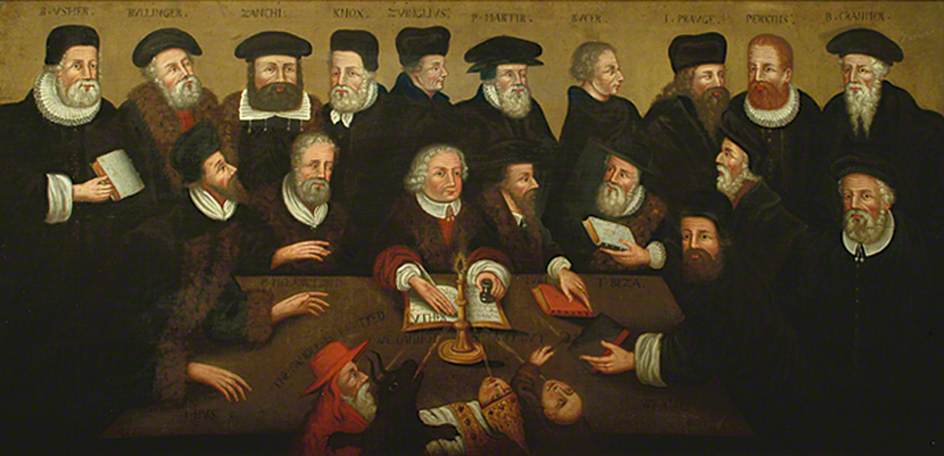
I will offer two theses. Admittedly, they are biased. I offer them for discussion, since ConcordiaTheology.org is intended to be a place for discussion—honest, frank, but also fair and respectful, not ad-hominem, and not concerning the politics of Concordia Seminary’s particular church body, the Lutheran Church–Missouri Synod (LCMS). Both theses contribute to the effort of assessing the state of things in 2016.
My first thesis is this: “Current theological work in the LCMS is the best kept secret in American Christianity.” There is excellent theological work currently being done within the LCMS. Notable examples include:
- exegetical work in the Concordia Commentary series;
- work on the first article and creation theology;
- work on rediscovering the early church fathers;
- work on the history of the church in the Middle Ages;
- work on Reformation history and theology;
- work on understanding the entire Christian narrative in a holistic way;
- work in the area of virtue ethics;
- work in the areas of homiletics and pastoral practice.
Excellent theological work is being done, but I don’t see non-Lutherans interacting with it very much. Admittedly, that is a rather broad generalization. There are noteworthy exceptions here and there, but in general, theological work within the LCMS is not receiving much attention from non-Lutheran circles. It is as if we are dwarves with a secret pot of gold.
If that thesis is true, it raises the obvious question of why. My second thesis addresses the why: “Non-Lutherans simply don’t know the theological work currently done in the LCMS.” I don’t expect mainline liberal Protestants to be any more interested in us than we are about some of the topics they talk about. But why don’t more conservative Christians, such as more traditional Roman Catholics, Evangelicals, conservative Presbyterians and Anglicans, know the theological work currently done in the LCMS? Here are some possible reasons.
- Is it because we don’t interact in non-Lutheran circles enough? What I see in our circles is Lutherans talking and debating with Lutherans. It resembles a basketball team that only scrimmages with itself. That is necessary, but eventually you have to play another team.
- Is it because we don’t address the questions non-Lutherans are asking? We are so swamped with our daily work that we don’t have time to read and consider outsider questions. But that consideration is crucial to a broader understanding of church and world.
- Is it because we don’t respect the theological work being done by non-Lutherans? There is some excellent and very helpful work being done by conservative non-Lutheran theologians.
- Is it because we don’t speak, write and communicate in outsider language? When a piece is pitched as “a distinctively confessional Lutheran approach,” that pitch is only for insiders. A Mennonite is not interested in reading a “distinctively confessional Lutheran approach” any more than I want to read a “distinctively Mennonite approach.” The language we use comes across as addressed only to Lutherans.
- Is it because we don’t aggressively market our “brand” in non-Lutheran circles? We should think about marketing. Luther used the technology of his day, the printing press.
If you disagree, I welcome your thoughts. I don’t claim infallibility. The status quo cannot be changed overnight, and no one person is responsible for change. Yet we do need to assess the way things are in 2016. What do you think?

Leave a Reply
You must be logged in to post a comment.